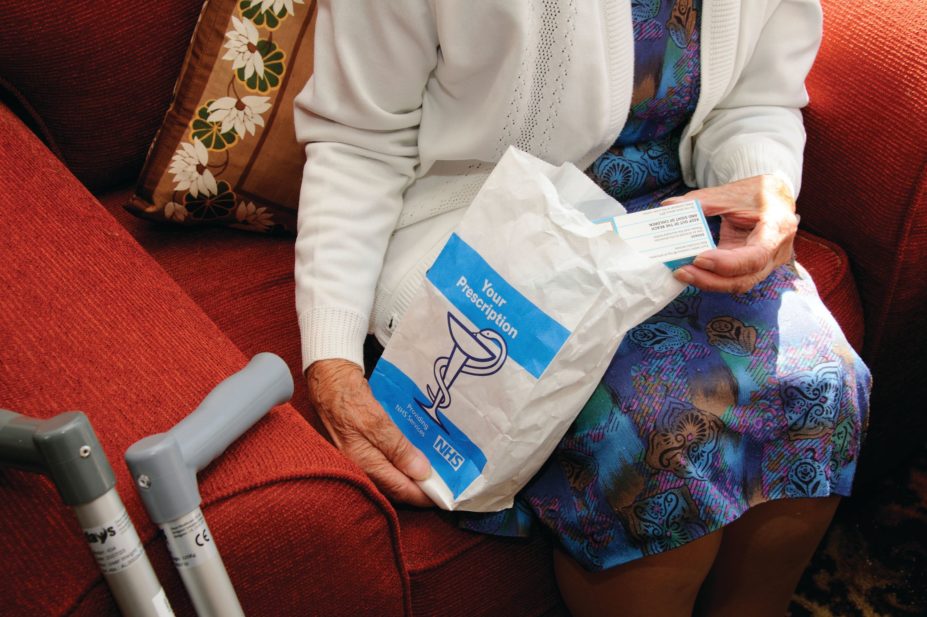
Alamy
The Community Pharmacy Patient Safety Group (PSG) has launched a full review of its standard operating procedures (SOP) after several incidents of poor practice in its members’ medicines delivery services were revealed.
Some of the more serious incidents reported resulted in death and serious illness.
An investigation was launched by the PSG after reports that the number of patients requesting a medicine delivery service was on the increase.
To inform the work, two members of the PSG shadowed medicines delivery drivers on their shifts and a number of delivery incidents were also shared directly by Boots UK and other member organisations, as part of the probe.
The exercise revealed that on one occasion a delivery driver handed medicine intended for an elderly lady to her son instead. It was reported that the son then failed to give the medicine to his mother but instead took all the tablets himself resulting in his death. On another occasion a driver delivered medicines, including benzodiazepines, to a next-door neighbour, who happened to have a serious drug problem.
There were also examples of medicines being delivered through letterboxes and being eaten by dogs; delivery drivers mixing up medicines; medicines being stolen after they were left on doorsteps; and medicines being delivered to the wrong address.
José Moss, lead author of a discussion and advice paper published by the group, says: “Shadowing our delivery drivers was a thoroughly enlightening experience. We gained a true insight into the complex needs of some of our delivery patients and the unique challenges that our delivery drivers face in their day to day work.
“This paper is not intended to be seen as guidance or best practice. It is intended for information purposes and to stimulate a discussion. The [PSG] would like to encourage pharmacies which do offer, or are looking to offer, medication delivery services to take a look through our insights and consider how their services compare with what we’ve found.”
Safety recommendations
The paper contains a series of insights, which members of the PSG have agreed to adopt into their pharmacy teams’ practice:
1. Patient need for a delivery service should be established rather than presumed;
2. There is a requirement for permission to deliver medication to a patient at home;
3. The involvement of the Responsible Pharmacist (RP) is crucial in the set up and maintenance of the medicine delivery service;
4. The patient must be able to positively identify himself/herself on every occasion. If not, an alternative solution should be found for reasons of patient safety;
5. Hiding medicine from the patient is not appropriate from a community pharmacy delivery service;
6. Safe havens (i.e. a lockable box outside a patient’s property) should not be used for the delivery of medicine;
7. A key safe access system may be used with the correct consent, SOPs and support for delivery drivers;
8. Delivery to an alternative address (where the driver does not need to get back in the van) is appropriate to improve efficiency and ensure the patient receives his/her medicine in a timely manner;
9. The decision to deliver items by taxi must be made only when all the above options have been explored in full and are considered unsuitable;
10. Sending medicine via the Royal Mail (or other courier service) should be only considered as a last resort by general community pharmacy teams. If this route is chosen, the medication should be packaged securely so that the contents are not obvious and the delivery signed for by the intended recipient.
Kate Livesey, senior policy and programmes advisor at the Company Chemists’ Association (CCA), said key data and incident trends are shared with the support body NHS Improvement, and the Medicines and Healthcare products Regulatory Agency (MHRA), which regulates medicines and medical devices in the UK.
She said: “We have found through our experiences that often the most vulnerable of our patients are those who are less mobile or who have substantially fewer social interactions due to being home-based. These are often the patients who receive their medications via a delivery service so we feel it is timely that we publish our insights into providing the safest possible service for these groups.”
The PSG was established in February 2015 after NHS Improvement and the MHRA recommended that all large community pharmacy institutions appoint a medication safety officer (MSO) to oversee safety incidents.
Together, the MSOs established the PSG with the support of Pharmacy Voice, a trade association representing community pharmacy in England that closed earlier this year. The group is now hosted by the CCA and meets regularly to share information and ideas.
The group is made up of the 18 largest multiples, smaller pharmacy chains and independent pharmacists.
- On 28 June 2017, this story was amended to include further details of the structure of the PSG.


